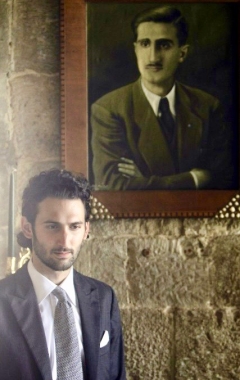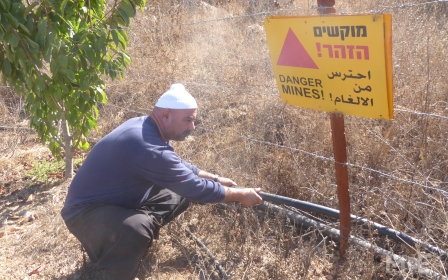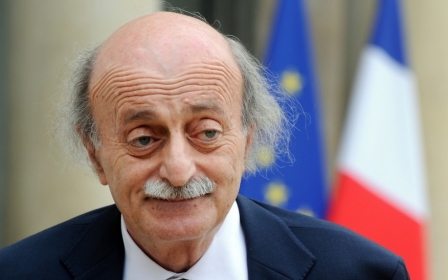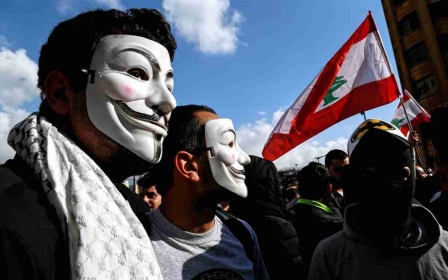Lebanon's Jumblatt affirms son Taymour as political heir
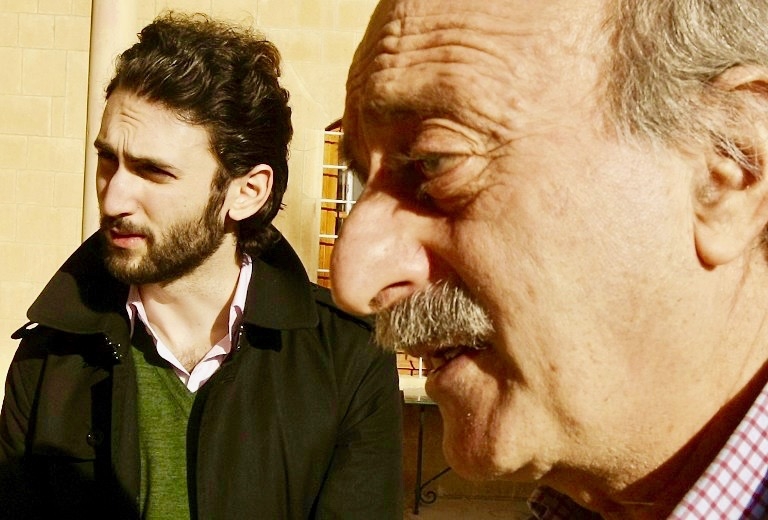
Lebanon's main Druze leader, Walid Jumblatt, on Sunday publicly confirmed his son Taymour as his political heir, extending the tradition of dynastic politics that plays a big part in the country's sectarian government.
Jumblatt, the leading politician of the minority Druze community, took off his Palestinian keffiyeh scarf and placed it on the shoulders of his son at a televised rally in the town of Moukhtara in the Chouf mountains.
"Oh Taymour, carry the heritage of your grandfather, the great Kamal Jumblatt," Walid told his son, on the 40th anniversary of the murder of his father.
Kamal Jumblatt was killed in 1977 after opposing the entry of Syrian troops into Lebanon the previous year. His own father had also been assassinated.
"Walk forward with your head held high, and carry the legacy of your grandfather," Jumblatt told his son at the event to commemorate the 40th anniversary of the assassination of Kamal.
Speaking to Reuters, Jumblatt said the scarf symbolised the issues he wanted his son to fight for and defend: Palestine, "Arab, progressive Lebanon" and reconciliation with Christians, whom the Druze fought in the 1975-90 civil war.
"I am handing him the scarf with the symbols I fought for and defended, and my father. It is a continuation of the policy of the family," Jumblatt told Reuters by phone.
Jumblatt will continue to serve as a member of parliament until the next parliamentary elections, when he will step down. He will also continue to serve his current term as head of the Progressive Socialist Party, which was founded by his father.
"I am not retiring. I am waiting for the elections - if there are elections - to present my resignation ... and my son will be officially presenting his candidacy for the elections," he said.
Lebanon is due to hold parliamentary elections later this year, but rival political groups have yet to agree on an election law. Lebanese parliamentary elections have been delayed twice since they were last held in 2009.
Walid Jumblatt took on his family's political leadership after the assassination of his father in the early years of the Lebanese civil war, and was one of the main figures in the conflict. Jumblatt has accused Syria of being behind the assassination of his father.
The Druze, adherents to a small but influential offshoot of Islam that emerged in the 11th century, are an important minority in Lebanon's sectarian system of government. Jumblatt has frequently played kingmaker in Lebanese politics.
After the war, Jumblatt was part of the Syrian-dominated order in Lebanon, before joining the anti-Syrian coalition that mobilised to help force the Syrian army to withdraw from the country in 2005, after the killing of statesman Rafik al-Hariri.
Jumblatt said it was the first time a member of his family had been able to pass on the political mantle during their lifetime "for the simple fact that nobody died in his bed".
"I am the first one to be able to survive 40 years. My father was killed, my grandfather was killed - all my ancestors were brutally killed," he said.
New MEE newsletter: Jerusalem Dispatch
Sign up to get the latest insights and analysis on Israel-Palestine, alongside Turkey Unpacked and other MEE newsletters
Middle East Eye delivers independent and unrivalled coverage and analysis of the Middle East, North Africa and beyond. To learn more about republishing this content and the associated fees, please fill out this form. More about MEE can be found here.


